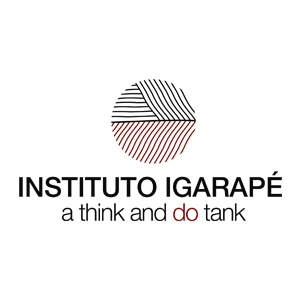IDB Report Shows the Potential of Bioeconomy to Reverse Deforestation in the Amazonian Region
A new report by the Inter-American Development Bank (IDB) and the Igarapé Institute examines the bioeconomy of eight Amazonian countries and showcases opportunities to create sustainable economic alternatives for the almost 50 million people living in the region. The report provides new insights on ways to protect the Amazon rainforest before it undergoes a tipping point due to deforestation and degradation.
“Re-imagining bioeconomy for Amazonia” explores how a deeper understanding of local bioeconomy, together with enabling legislation, capital for rapid scaling-up, and infrastructure, can contribute to a thriving regional bioeconomy that helps slow and, eventually, reverse the biodiversity loss.
Prepared in partnership with the Igarapé Institute, the report is the product of roughly 100 interviews and a two-stage survey of over 1,000 respondents from the public and private sectors, academia, and civil society across the Amazon.
The scaling-up of the bioeconomy and the creative economy are key pillars of Amazonia Forever, the IDB’s holistic umbrella program for the sustainable development of the Amazonian region. The report’s findings are intended to guide IDB’s approach to bioeconomy.
“A starting point for scaling-up Amazonia’s bioeconomy is understanding how it is defined, but a rigid definition of it could be counterproductive when it comes to fostering sustainable economic activities”, said Tatiana Schor, Chief of the Amazonia Unit at the IDB.
“A flexible and inclusive approach that views bioeconomy as activities aligned with fundamental principles can accommodate the dynamic and evolving nature of bioeconomic activities across the region,” added Schor.
While revealing a complex mosaic of definitions, the report confirms that bioeconomy activities across Amazonian countries conform to at least five basic principles:
- The use of biological resources and processes;
- The integration of science, technology, and innovation;
- The inclusion of ancestral and traditional knowledge;
- Investments intended to enhance value addition through improved processing and supply chain efficiencies; and
- A commitment to environmental sustainability, decarbonization, and the provision of environmental services, alongside substituting fossil fuel-based products with more sustainable alternatives.
”With the Amazon Basin facing a dangerous tipping point, the acceleration of alternative economic models that value a standing forest are crucial. Developing shared definitions and approaches is essential to generate real scale that makes a difference”, said Robert Muggah, the co-founder of the Igarape Institute and co-author of the report.
Despite differences in how bioeconomy is defined among the eight countries, there is a growing consensus that it is critical to meet climate and development goals while also sustainably managing native biodiversity.
According to several analysts, Amazonian countries are particularly well-positioned to contribute to the global bioeconomy market, which is expected to reach $7.7 trillion by 2030. However, these countries collectively stand to receive just 0.17% of the total value of the global bioeconomy market’s potential. The global shift toward green investments in nature-based solutions also promises to open new channels of engagement in the bioeconomy.
The report shows that a more robust and resilient Amazonian bioeconomy will require blended finance, technical assistance, cross-sector and cross-country collaboration, as well as technology and innovation. Fortunately, there is a growing push to achieve these objectives in the region.
“The Amazon region has tremendous untapped potential to harness the bioeconomy in ways that benefit both people and planet. Doing so requires harmonization of legislation, a dramatic increase in capital, and an expansion of the pipeline of high integrity projects”, added Dr. Muggah.
Scientific and technological delays and infrastructural gaps are still a challenge in the region. According to the report, immediate action is required to avoid missing out on valuable economic opportunities associated with Amazonian biodiversity and biological resources, especially since rapid advancements in synthetic biology and computational biology may render natural alternatives increasingly less lucrative.
Ultimately, the report shows that success of Amazonian bioeconomy will be determined not just by sustainable economic investment, but by the alignment of progress with the region’s natural and cultural heritage as well as support for the rule of law.
The report highlights the need to honor and incorporate the rights, traditions, and knowledge of the Indigenous peoples and other local communities to advance Amazonian bioeconomy and explores the principles for indigenous bioeconomy. As stewards of the region, they will make pivotal contributions to a bioeconomy that is equitable and culturally sensitive.
About Amazonia Forever
Amazonia Forever is a holistic umbrella program that aims at protecting biodiversity and accelerating sustainable development in three lines of action: expanding funding, boosting knowledge exchange, and facilitating regional coordination among the eight Amazonian countries.
The program is based on five pillars: (i) Combating deforestation and strengthening environmental control and security in the context of national governments; (ii) Bioeconomy and creative economy, promoting alternative and sustainable economic activities; (iii) People, aiming at adequate access to quality education, healthcare, and employment; (iv) Sustainable cities and infrastructure and connectivity; and (v) Sustainable, low-carbon agriculture, livestock and forestry. In addition, the program focuses on promoting the inclusion of women, indigenous peoples, people of African descent and local communities; climate and forest conservation; and strengthening institutional capacities and the rule of law.
About the IDB
The Inter-American Development Bank is devoted to improving lives. Established in 1959, the IDB is a leading source of long-term financing for economic, social and institutional development in Latin America and the Caribbean. The IDB also conducts cutting-edge research and provides policy advice, technical assistance and training to public- and private-sector clients throughout the region. Take our virtual tour.



